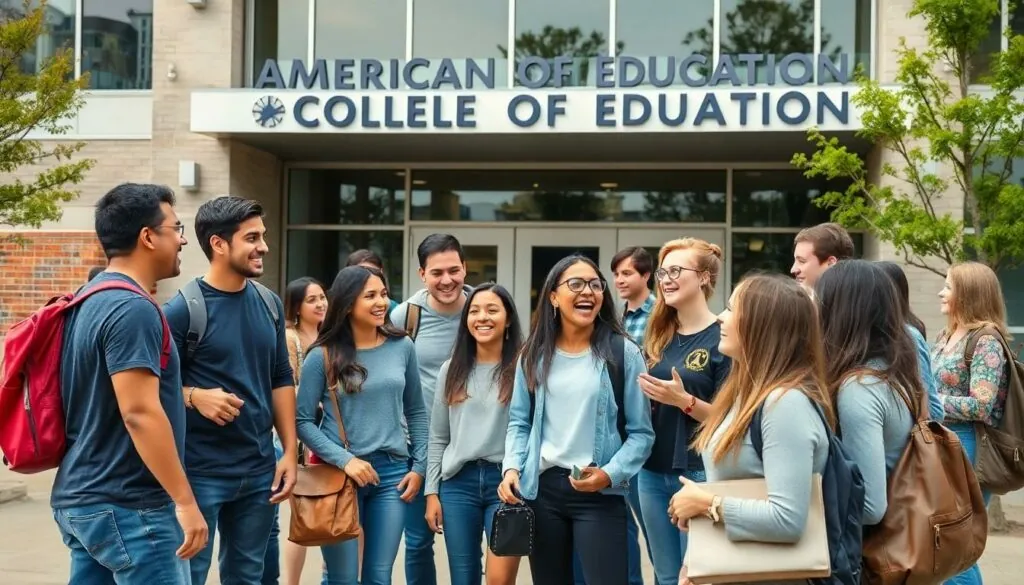Navigating the college acceptance maze can feel like trying to find the last piece of pizza at a party—stressful and competitive. With acceptance rates dropping faster than a freshman’s GPA after finals, students are left wondering what it takes to stand out in a sea of applicants. Spoiler alert: it’s not just about acing those standardized tests or crafting the perfect essay.
Table of Contents
ToggleUnderstanding College Acceptance
College acceptance plays a critical role in shaping a student’s academic journey. It defines opportunities in education, career paths, and personal growth.
The Importance of College Acceptance
College acceptance significantly impacts future career prospects. Graduates from reputable institutions often attract employers, increasing their chances of securing desirable positions. Acceptance also fosters networking opportunities; connections made during college can lead to collaborations and mentorship. Students in selective colleges frequently experience enhanced learning environments. Such institutions often provide access to advanced resources, experienced faculty, and research opportunities.
Factors Influencing College Acceptance
Multiple elements influence college acceptance, including academic performance. High school GPA and standardized test scores, such as the SAT or ACT, hold considerable weight during evaluation. Extracurricular activities also play a crucial role; involvement in clubs, sports, or community service showcases a student’s diverse interests and leadership skills. Personal essays further convey individual narratives, reflecting values and aspirations. Letters of recommendation from teachers or mentors add credibility to applications by highlighting character and potential.
The College Application Process

The college application process involves several essential steps. Students must present a well-rounded profile to gain acceptance to their desired institutions.
Key Components of College Applications
Academic performance influences acceptance decisions significantly. High school GPA and standardized test scores provide a quantitative measure of a student’s capabilities. Extracurricular activities also play a pivotal role; involvement in clubs or sports showcases a student’s interests and leadership skills. Personal essays present a chance for candidates to demonstrate their unique perspectives and motivations. Letters of recommendation offer insights into a student’s character and work ethic, adding depth to their application.
Tips for a Strong Application
Highlight achievements and experiences pertinent to prospective colleges. Focus on crafting an authentic personal essay that reflects individual values and aspirations. Build relationships with teachers, as strong letters of recommendation stem from genuine connections. Define clear goals for each application to tailor responses that align with college missions. Lastly, proofread all materials rigorously to eliminate errors that might detract from the overall impression.
Common Myths About College Acceptance
Understanding college acceptance involves debunking myths that can mislead students and parents alike. Recognizing the truth behind these misconceptions aids in navigating the application process effectively.
Myth vs. Reality
Many believe that only top grades guarantee acceptance. In truth, colleges seek well-rounded candidates who demonstrate leadership, creativity, and passion. Another common myth suggests that attending a prestigious high school is essential for college admission. Most colleges prioritize an applicant’s achievements within their context, valuing diverse backgrounds and experiences. Finally, a belief persists that applying early ensures acceptance. While early decision can be advantageous, it doesn’t guarantee admission and might increase stress for students.
Misconceptions About Standardized Tests
Some assume high test scores are the sole pathway to acceptance. Colleges consider multiple factors, including essays and recommendations, alongside test scores. A strong score does enhance an application, yet many institutions have adopted test-optional policies, placing greater importance on holistic reviews. Additionally, students think that one poor score completely derails their chances. It’s possible to overcome a low score with compelling components in the application. Colleges review the entirety of an applicant’s profile, so context around test scores often plays a significant role.
Strategies for Increasing Your Chances of College Acceptance
Focusing on academic performance significantly impacts college acceptance rates. Strong high school GPA reflects diligence and commitment, serving as a key factor during evaluations. Maintaining advanced coursework showcases a challenging curriculum, which may impress admissions committees. Achieving high scores on standardized tests, while not mandatory for all colleges, enhances competitiveness. Consistent academic improvement demonstrates resilience and dedication, desirable traits for any student. Balancing coursework with extracurriculars creates a well-rounded applicant profile.
Engaging in extracurricular activities illustrates a student’s passions and interests. Participation in clubs, sports, or community service can enhance an applicant’s appeal to colleges. Leadership roles often indicate responsibility and initiative, qualities colleges appreciate. Students involved in music, debate, or volunteer work demonstrate diverse skills and commitment to their communities. Highlighting unique activities along with leadership experiences provides depth to personal essays. Colleges seek candidates who contribute positively to their campus culture, making active involvement essential.
Navigating the college acceptance process can be daunting yet rewarding. Students must embrace the journey and focus on presenting their authentic selves. By balancing academics with meaningful extracurricular activities and crafting compelling personal essays, they can enhance their applications significantly.
Understanding the holistic nature of college admissions allows students to approach their applications with confidence. With the right preparation and a clear vision of their goals, they can stand out in a competitive landscape. Ultimately, the effort put into this process can lead to transformative opportunities that shape their futures.





